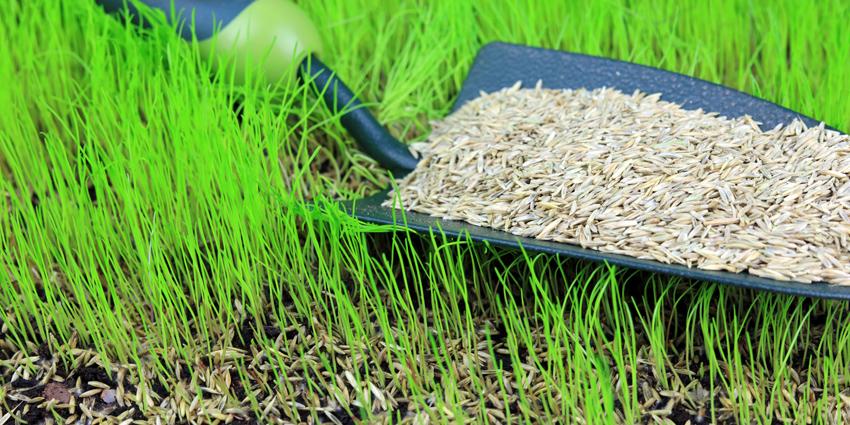
Created By
Matt Adams
Updated On
- July 26, 2024
Get FREE Exclusive Access
Keep your lawn pristine with exclusive tips, offers and insights that I only share with my private subscribers.
Latest Posts
How long does grass seed last when stored & How to increase shelf-life?
- By Matt Adams
- July 26, 2024
Jump to
Get FREE Exclusive Access
Keep your lawn pristine with exclusive tips, offers and insights that I only share with my private subscribers.
If you buy grass seed, you might be wondering whether it’s best to buy a little more than you need so you can use it in the future.
You might also be wondering whether you have the right storage conditions for the whole year. Especially in Winter when temps can get really cold.
So, in this article.
I’m answering a common question about how long your grass seed will last in, for example, the shed.
I’ll also explain the best way to store it so it’s guaranteed to germinate when you finally come to using it.
What’s the Shelf Life of Grass Seed?
Grass seed, like all seeds, has a finite shelf life.
Generally, the longevity of grass seed ranges from one to three years under ideal storage conditions.
However, this can vary based on the species of grass and the seed’s initial quality.
It’s also suggested that grass seed will lose around 10-20% of it’s germination success after the first year.
Initial Freshness and Quality can make a difference
When purchased, high-quality, fresh seeds tend to have a higher germination rate, which can decline over time.
This decline in germination rate is a natural process but can be slowed down with proper storage.
Type of Grass:
Different types of grass seeds have varying shelf lives. For example, cool-season grasses like Kentucky bluegrass and perennial ryegrass often have shorter viable periods compared to warm-season grasses such as Bermuda grass or zoysia.
At The Relentless Gardener, we don’t store piles of stock, so you can guarantee you’re getting fresh seed every time you buy.
How to keep Grass Seed in Ideal Storage Conditions
The longevity of grass seed significantly depends on how it is stored. Proper storage can extend the life of the seed, maintaining its viability for longer periods.
Choose a storage location that is cool, dry, and dark. Avoid areas where temperature and humidity fluctuate significantly, such as near windows or in garages that are not climate-controlled.
Here are some key factors:
Store in the correct temperature:
Grass seed should be stored in a cool environment. Temperatures between 4°C and 10°C are ideal.
Too low or too or too high temperatures can accelerate the deterioration process.
What’s more, it’s a good idea to keep it away from frost. I.e. don’t leave it outside uncovered
Keep it in low Humidity levels:
Seeds should be kept in a dry place. High humidity can lead to mould growth and seed decay.
On the contrary, it can even lead to seed germinating within itself.
A relative humidity below 50% is recommended for storing grass seed.
When I first started The Relentless Gardener, sometimes the storage conditions got a bit damp.
I found that the bag of seed at the bottom of the pile had actually started to germinate itself due to moisture being trapped on the ground.
So, just be sure to keep it as dry as possible. monitor the temperature and humidity of the storage area. Dehumidifiers can be useful in keeping the air dry in particularly humid climates.
Keep away from light
Seeds should be kept in a dark place as exposure to light can negatively impact their viability.
Keep it in an air-tight Container Storage:
Airtight containers are best for storing grass seed as they protect against moisture and pests.
If the original packaging is opened, transferring the seeds to a sealable container is advisable.
Plastic bins with tight-fitting lids or glass jars with rubber seals work well.
Why it might not be a good idea to store grass seed
Ultimately, unprotected grass seed can attract pests. Namely mice and other wildlife that like seeds. With that in mind, I wouldn’t recommend storing opened packets of seed in a shed for any length of time.
Is it worth buying more than necessary
I usually recommend buying as close to the amount you need as is possible.
For example, if you have a 50m2, then you’re fine to buy up to 70m2 worth.
However there’s little point in buying a few kilos on the basis you might use it in the future.
That said, don’t worry too much if you’ve already bought yours. By following these guidelines, you can maximise the longevity of your grass seed and achieve a lush, healthy lawn.
